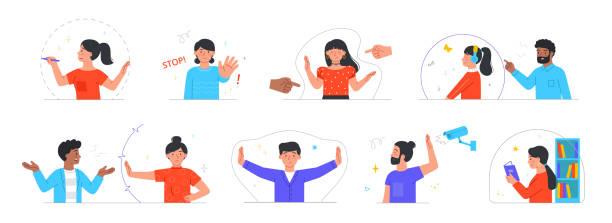LEARN TO SAY NO: How Setting Boundaries Can Make You More Productive.
We've all been there - you're already drowning in a sea of responsibilities, yet someone asks for yet another favor. And what do you do? You say yes, because you don't want to come across as a heartless monster. Learning to say "no" is important and lucky for you, I'm here to share some practical tips on how to politely decline without making enemies or feeling like a grumpy cat. So, buckle up, take a deep breath, and let's dive into the art of saying "no" like a boss.
Learning to say "no" can help you become more productive, reduce stress, and improve your overall well-being. Saying "yes" to everything that comes your way can lead to burnout, anxiety, and overwhelm. However, saying "no" is not always easy, especially when you are worried about hurting someone's feelings or missing out on an opportunity. That's why it's important to develop the skill of saying "no" in a way that is both firm and kind.
The Importance of Boundaries
Before we dive into the specifics of saying no, let's talk about the importance of boundaries. Boundaries are guidelines that you set for yourself to determine what you will and will not tolerate in your life. They are important because they help you protect your time, energy, and mental health. Without boundaries, you may find yourself taking on too much, getting overwhelmed, and ultimately burning out.
Setting boundaries can be difficult, especially if you're used to putting others' needs before your own. By setting boundaries, you're not only taking care of yourself but also setting an example for others to do the same. It's not selfish, it's self-care.
Tips for Saying NO
Now that we've established the importance of boundaries, let's talk about how to say no. First and foremost, it's important to recognize that saying no is not a bad thing. In fact, it's a sign of self-respect and self-care. So, when you find yourself in a situation where you need to say no, remind yourself that it's okay and that you're not being selfish or rude.
Here are some practical tips to help you master the art of saying no:
- Be clear and concise: When saying no, it's important to be clear and concise. Don't beat around the bush or make excuses. Instead, state your answer directly and respectfully. For example, "Thank you for asking, but I won't be able to take on that project at this time."
- Offer an alternative solution: If you're unable to say yes to a request, consider offering an alternative solution. This shows that you're still willing to help, but that the original request wasn't feasible. For example, "I'm not able to attend the meeting, but I can send my notes and contribute via email."
- Practice saying no: Learning to say no takes practice. Start by saying no to small requests and work your way up to bigger ones. The more you practice, the easier it will become.
- Don't apologize: You don't need to apologize for saying no. Saying no is a perfectly reasonable response, and you don't owe anyone an apology for taking care of yourself.
- Remember your priorities: When deciding whether to say yes or no to a request, remember your priorities. Does the request align with your goals and values? Will it bring you joy or fulfillment? If not, it may be best to say no.
The Benefits of Saying NO
Learning to say no can be difficult, but the benefits are well worth it. Here are just a few of the benefits you can experience by setting and enforcing boundaries:
- Increased productivity: By saying no to requests that don't align with your priorities, you free up time and energy to focus on what's important. This can lead to increased productivity and a greater sense of accomplishment.
- Reduced stress and anxiety: Saying yes to everything can lead to stress and anxiety. By setting boundaries and saying no when necessary, you can reduce your workload and minimize your stress levels.
- Improved relationships: Believe it or not, saying no can actually improve your relationships. By being honest about your boundaries, you show others that you respect yourself and expect to be respected in return. This can lead to healthier, more fulfilling relationships.
Conclusion
Learning to say no can be challenging, but the benefits are numerous. Remember that saying no is a skill that can be developed with practice. With patience and persistence, you can become more comfortable with setting boundaries and saying no when necessary, leading to a more fulfilling and satisfying life. So, start saying no to the things that don't align with your priorities, and yes to the things that matter most to you. Your future self will thank you.
I hope you enjoyed reading this as much as I enjoyed writing it. Thanks for reading and remember to stay awesome, stay inspired, and stay true to yourself.



































